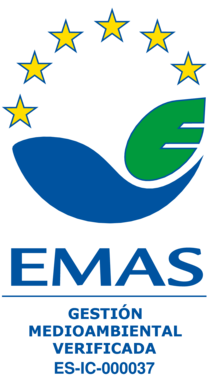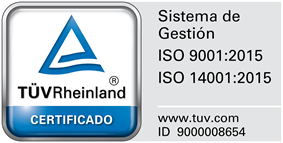Cetaceans kept in accordance with French zoo legislation and best professional practice
- Zoological parks in France are licensed to operate by the government following inspections that ensure compliance with the EU Zoos Directive 1999/22 and specific requirements imposed by French law under the decree of 25 March 2004. The parks also must comply with additional detailed requirements under a 1981 Decree on the keeping of cetaceans.
- The three parks in France currently keeping and exhibiting bottlenose dolphins — Planete Sauvage, Parc Asterix, and Marineland Antibes (which also keeps orcas) — are duly licensed by French authorities. They also all are accredited members of the European Association for Aquatic Mammals (EAAM) complying with best professional practices under Standards & Guidelines for bottlenose dolphins.
Dolphins in EAAM/EAZA Zoos are a Thriving, Self-Sustaining Population
- Operating under the EAAM Standards & Guidelines and through mandatory cooperation in a species management program operated by the European Association of Zoos and Aquariums (EAZA), EAAM parks have achieved a self-sustaining population (for more than the next 100 years) of bottlenose dolphins in Europe. The health and well-being of the dolphins in human care is proven by the fact that they live on average far longer in accredited zoological parks than in the wild and are reproducing. Indeed, more than 70% of the dolphins in EAAM parks today were born in human care. There has been no capture of dolphins from the wild for more than twenty years for exhibition in France. Because of their relative longevity in zoos, however, animals that were taken from the wild many, many years ago are still alive and well. Of the 28 dolphins currently kept in France, 22 were born in zoos. Of the 97 dolphins born in European zoos frm 2005-2015, 15 were born in France.
Parks support modernizing the 1981 Decree on keeping of cetaceans
- Representatives of French zoological parks agree that the 1981 decree is outdated and therefore participated in a working group in good faith for more than two years to facilitate a positive revision of the decree based on peer-reviewed scientific evidence, technical information, best professional practices, and hands-on experience with successfully keeping cetaceans in human care from the animal health and welfare perspectives.
- The stated purpose of the working group established to examine the 1981 Decree was to provide requirements to ensure a high level of keeping and care of cetaceans to meet their biological and health needs and permit the animals to express their natural behaviours.
- Much progress was made, however, certain proposals were not based on the needs of the animals or science and may be technically impossible to achieve.
Decree abandons focus on animal welfare and aims to close all cetacean facilities in France
- On the eve of the second round of presidential elections, Mme. Segolene Royal, then Minister of the Environment, Energy and Oceans, issued a press communication in which she announced that she had signed a new decree. This appears to have been done without any assessment of impacts on animal welfare or socio-economic impacts of the proposals that had been under consideration. The Decree was published on 6 May 2017 and took effect the day thereafter.
- Clearly evidencing the political nature of her intervention, the press communication states that the Decree was put in place with the assistance of multiple named animal rights and campaign organisations. The Minister gratuitously inserted in the opening article the need to prevent “suffering” of the animals — when observable evidence shows that the animals are not suffering but are thriving. She inserted a ban on the keeping of cetaceans and introduced a total ban on reproduction in direct contradiction to the original purpose of ensuring optimal natural behaviours.
Requirements are Extreme, not Evidence-based, and Impossible within transition deadlines
- The adopted Decree requires significant changes to facilities that are not based on welfare
needs. The level of change required would necessitate the relocation of the animals out of their familiar and government-approved habitats during construction. As no other zoo could likely keep all the animals in their current social groups, significant stress and risk is entailed. - The size of pools must not only be significantly increased in volume and depth but also allow for underwater viewing. Even if permits could be obtained — which is not a simple matter -the massive changes required could not be achieved in the short 3 years provided.
- The Decree also prohibits the use of chlorine, which is used in small amounts together with ozone in zoological parks to eliminate bacteria and ensure high water quality for the animals. Eliminating chlorine entirely would require significant changes to water filtration systems and would certainly not be possible within the six month period allowed for compliance. Moreover, a backup system — in all likelihood involving chlorine — would almost certainly be required to ensure the safety of the animals.
- Furthermore, the new Decree removes any incentive to make the kinds of investments that it would require or even voluntary enhancement of educational or conservation programs related to these important ocean ambassadors because it includes a new and sweeping prohibition on the keeping and reproduction of cetaceans.
Prohibition on keeping cetaceans forces closure, not investment in the interest of animals
- The far-reaching prohibition on cetaceans in France is created by banning the keeping of cetaceans other than those present in the parks as of the effective date of the decree and then prohibiting reproduction even of the existing animals.
- The prohibition means that from 7 May 2017 no stranded cetacean can be rescued and rehabilitated in France.
- The Decree also dooms the dolphins and orcas currently in French parks because it does not allow cetaceans from zoological parks outside of France to be brought into France even if needed to ensure appropriate social groupings. This means that the French zoological parks are compelled to manage the existing animals until their deaths in dwindling, static and, over time, potentially dysfunctional social groups.
- Equally, without two-way cooperation, French facilities cannot expect other zoos to keep cetaceans currently housed in France to allow the construction required by the decree.
Decree Blocks EU cooperation in the interest of the animals and impacts EU population
- The prohibitions not only dooms the grandfathered cetaceans in France but negatively impact the entire population of cetaceans in human care in European zoological parks because the animals in France are effectively removed from the gene pool of bottlenose dolphins managed at the European level for the benefit of the European population.
Closure of cetacean exhibits detrimental to education, tourism and local economies
- While neither bottlenose dolphins nor orcas are endangered species, they serve as powerful ambassadors and focal points for public education about the state of the world’s oceans and seas and human impacts on them and their inhabitants. Without these icons of the oceans, parks will not be able to carry on with their conservation and education programs for the benefit of the French public and the many tourists that visit the parks.
- More than 1000 people are employed directly or indirectly as a result of the keeping of cetaceans in French parks. These are full time professional jobs as well as part time jobs during the high season employing local youth. Visitors to the parks also contribute to the local economy as they patronize nearby hotels, restaurants and other businesses.
In short, the combination of new requirements with impossible timeframes paired with the prohibition on keeping and breeding cetaceans threatens the ability of the French parks to maintain their marine mammal programs, including the keeping of dolphins – precisely the political goal of the former Minister and her non-governmental partners.
The Decree should be invalidated with the result that the 1981 Decree would remain in force. A serious, evidence based review should be undertaken to identify the aspects of the 1981 Decree which need to be updated. Any necessary revisions should be made in accordance with the animals’ interests and scientific evidence to ensure that the keeping of cetaceans in France is in accordance with recognized and proven best professional practices and allows for continuing cooperation with zoological parks across Europe.













